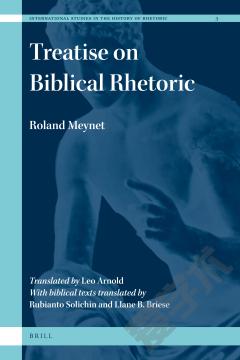Biblical Form Criticism in its Context
This magnum opus is not another catalogue of the forms of biblical literature, but a deeply reflected account of the significance of form itself. Buss writes out of his experience in Western philosophy and the intricate involvement of biblical criticism in philosophical history. Equally, biblical criticism and the development of notions of form are related to social contexts, whether from the side of the aristocracy (tending towards generality) or of the bourgeois (tending towards particularity) or of an inclusive society (favouring a relational view). Form criticism, in Buss's conception, is no mere formal exercise, but the observation of interrelationships among thoughts and moods, linguistic regularities and the experiences and activities of life. This work, with its many examples from both Testaments, will be fundamental for Old and New Testament scholars alike.
{{comment.content}}








 京公网安备 11010802027623号
京公网安备 11010802027623号